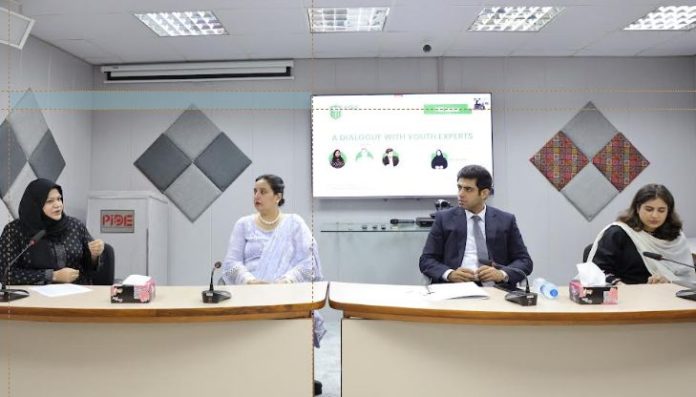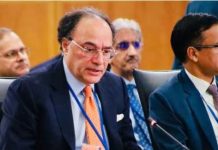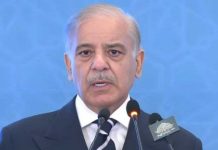ISLAMABAD, JUL 23 /DNA/ – The Pakistan Institute of Development Economics (PIDE) hosted an insightful seminar titled “Inclusion, Diversity, and Rights: A Dialogue with Youth Experts” on July 23, 2025. The event brought together leading voices from the government and civil society to explore how Pakistan can address the urgent challenges confronting its youth.
Moderated by Dr. Fizzah Khalid Butt, Assistant Professor at PIDE, the discussion featured three distinguished panelists: Ms. Uzma Yaqoob (Executive Director, Forum for Dignity Initiatives), Mr. Ahmed Sultan Butt (Special Assistant to the Minister for Planning, Development & Special Initiatives), and Ms. Huma Jehangir (Program Implementation Lead, Pakistan Youth Change Advocates).
Ms. Uzma Yaqoob began the discussion by addressing the complexities of youth marginalization in Pakistan. While the often-cited statistic that 65% of Pakistan’s population is under the age of 30 is viewed as a demographic advantage, she argued that this potential remains largely untapped due to systemic issues such as poverty, regional inequality, lack of mental health support, and discriminatory social structures.
She emphasized that youth from diverse backgrounds—particularly those with disabilities, from religious minorities, or from the transgender community—face multiple layers of exclusion. Uzma criticized the state for relying on superficial policies without dedicated financial support and called for inclusive, well-funded, and actionable frameworks that can address the real needs of young people.
She stressed that the government should move beyond rhetoric and ensure meaningful representation, particularly in policymaking, education, and climate discourse.
Representing the government’s perspective, Mr. Ahmed Sultan Butt detailed the official vision for youth development under the “URAAN’ Pakistan” initiative, which outlines a strategic roadmap through 2029. This vision focuses on five key pillars: transitioning to an export-led economy, promoting clean energy, embracing the digital revolution, building resilience to climate change, and fostering ethics and equity.
Ahmed Khalid Butt highlighted government programs such as the Young Peace and Development Corps, which aims to engage one million youth in civic dialogue and skill-building through university-based chapters. He also discussed large-scale investments in Centers of Excellence in fields like cybersecurity, artificial intelligence, and industrial automation. These initiatives, he said, are designed to make youth employment-ready while also shifting the state’s approach from job patronage to empowerment and service delivery.
Responding to audience concerns, Mr. Ahmed acknowledged the need for safe and walkable cities and emphasized the importance of local governance in ensuring inclusive urban planning and effective service delivery.
Ms. Huma Jehangir addressed the dire state of youth health in Pakistan, especially the rising incidence of non-communicable diseases (NCDs) such as diabetes. Alarmingly, over 33 million people in Pakistan suffer from diabetes, with a significant portion under the age of 30.
Despite some government interventions like health cards and cardiovascular centers, the mental health crisis remains neglected. She pointed out that educational institutions lack even basic counseling units, while community-level support systems are nonexistent. Huma emphasized the urgent need to recognize mental health as a public health crisis and to treat equity—not equality—as the central principle of policy design.
Different youth segments face different challenges, and interventions must be tailored to reflect this diversity, particularly in underprivileged regions like Balochistan.
Throughout the seminar, panelists stressed that real inclusion must be structural, not symbolic. Inclusion cannot be limited to urban, educated, able-bodied youth; it must encompass students, domestic workers, child laborers, and marginalized communities. Ms. Uzma Yaqoob passionately advocated for the political participation of transgender individuals, including dedicated seats in provincial and national assemblies.
She challenged the audience and policymakers alike to question whether institutions are truly ready to be inclusive—not just in rhetoric, but in infrastructure, faculty training, and policy execution.
The panel also discussed the role of NGOs and civil society organizations as vital actors in youth engagement, particularly given their access to grassroots communities. However, she lamented the growing suspicion and resistance faced by NGOs, which hinders their ability to support youth effectively.
Audience raised critical questions about linguistic diversity, walkability of cities, and how to measure the actual impact of government initiatives. In response, Ahmed Sultan Butt reiterated that inclusive urban planning is being addressed through task forces and reforms in ICT governance. He emphasized that political stability, continuity of policy, and devolution of power to local governments are prerequisites for meaningful reform.
On the issue of transgender inclusion, both Mr. Ahmed and Ms. Uzma stressed the importance of national identity registration as a gateway to access education, health, and economic opportunities.
In conclusion, all panelists agreed that while numerous youth-focused initiatives exist, their effectiveness depends on implementation, monitoring, and alignment with ground realities. They called for policy design that is participatory, inclusive, and grounded in equity.
Dr. Fizzah Khalid Butt closed the session by highlighting that Pakistan’s youth represent immense potential, but without responsive policies and inclusive practices, this demographic dividend could turn into a liability. The seminar was a call to action for academia, policymakers, and civil society to co-create an environment where all young people—regardless of gender, ability, region, or economic status—can thrive and contribute meaningfully to national development.=DNA
=========

















